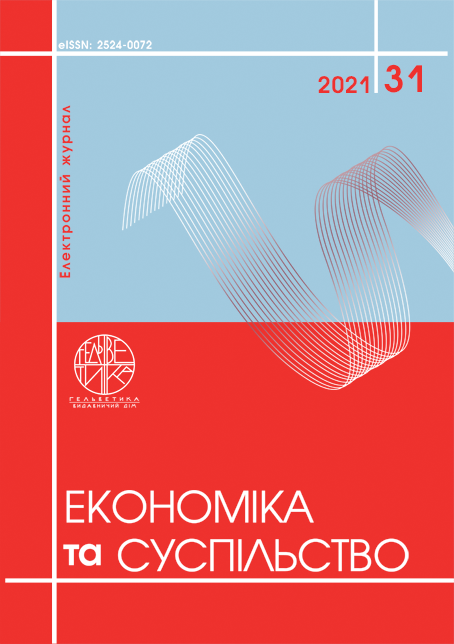RESTRUCTURING THEORETICAL FRAMEWORK OF URBAN SUSTAINABILITY FROM THE HEALTH DIMENSION
Abstract
The environmental crisis caused by rapid global urbanization has led to many public health problems, which has gradually become the new normal in the process of achieving sustainable urban development. This study aims to reveal the relationships between health, environment, and urban sustainability from a multidisciplinary perspective. Based on the existing research dimensions of urban sustainable development, the necessity, rationality, and feasibility of introducing the health dimension are proposed, and the research framework of health and urban sustainability is integrated and reconstructed. It is pointed out that scholars and policy makers should take the urban environment as the platform, take the duality of health and sustainability as the starting point, reconstruct the research framework of urban sustainability based on the health dimension, and provide a new theoretical perspective for the realization of urban sustainable development under the new normal.
References
Yu, B. (2021). Ecological effects of new-type urbanization in China. Renewable and Sustainable Energy Reviews, 135, 110–118. DOI: https://doi.org/10.1016/j.rser.2020.110239
Hao, Y., Deng, Y., Lu, Z. N., & Chen, H. (2018). Is environmental regulation effective in China? Evidence from city-level panel data. Journal of Cleaner Production, 188, 966–976. DOI: https://doi.org/10.1016/j.jclepro.2018.04.003
Dye, T., Levandowski, B., Siddiqi, S., Ramos, J. P., Li, D., Sharma, S., ... Pressman, E. (2021). Non-medical COVID-19-related personal impact in medical ecological perspective: A global multileveled, mixed method study. MedRxiv, 4 (10), 89–95. DOI: https://doi.org/10.1101/2020.12.26.20248865
Komilova, N. K., Zaynutdinova, D. K., Ozodovich, H. M., Egamberdiyeva, U. T., & Latibovna, A. Z. (2021). Medical Geographical Analysis of Population Health in Arid Climate Areas. European Journal of Molecular & Clinical Medicine, 8(2), 1105–1116. Retrieved from: https://er.nau.edu.ua/handle/NAU/50624
Finlay, J. M., & Rowles, G. D. (2021). Clinical geography: A proposal to embrace space, place and wellbeing through person-centered practice. Wellbeing, Space and Society, 2(10), 100–110. DOI: https://doi.org/10.1016/j.wss.2021.100035
Cruz, M. P., Santos, E., Cervantes, M. V., & Juárez, M. L. (2021). COVID-19, a worldwide public health emergency. Revista Clínica Española (English Edition), 221(1), 55–61. DOI: https://doi.org/10.1016/j.rceng.2020.03.001
Handy, S. L., Boarnet, M. G., Ewing, R., & Killingsworth, R. E. (2018). How the built environment affects physical activity: views from urban planning. American journal of preventive medicine, 23(2), 64–73. DOI: https://doi.org/10.1016/S0749-3797(02)00475-0
Radicchi, A., Cevikayak Yelmi, P., Chung, A., Jordan, P., Stewart, S., Tsaligopoulos, A., ... Grant, M. (2021). Sound and the healthy city. Cities & Health, 5(1–2), 1–13. DOI: https://doi.org/10.1080/23748834.2020.1821980
Doaemo, W., Dhiman, S., Borovskis, A., Zhang, W., Bhat, S., Jaipuria, S. et al. (2021). Assessment of municipal solid waste management system in Lae City, Papua New Guinea in the context of sustainable development. Environment, Development and Sustainability, 1(31). Retrieved from: https://link.springer.com/article/10.1007/s10668-021-01465-2
De Matteis, F., Preite, D., Striani, F., & Borgonovi, E. (2021). Cities' role in environmental sustainability policy: the Italian experience. Cities, 111, 102–110. DOI: https://doi.org/10.1016/j.cities.2020.102991
Crane, M., Lloyd, S., Haines, A., Ding, D., Hutchinson, E., Belesova, K., ... & Turcu, C. (2021). Transforming cities for sustainability: a health perspective. Environment international, 147, 106–115. DOI: https://doi.org/10.1016/j.envint.2020.106366
Rice, L. (2021). Healthy cities, diseasogenic cities and the Global South. Environment and Development, 2 (2), 37–65. DOI: https://doi.org/10.1007/978-3-030-55416-3-2
Brown, C. L., & Fredrickson, B. L. (2021). Characteristics and consequences of co-experienced positive affect: understanding the origins of social skills, social bonds, and caring, healthy communities. Current Opinion in Behavioral Sciences, 39, 58–63. DOI: https://doi.org/10.1016/j.cobeha.2021.02.002
Asma, S., Lozano, R., Chatterji, S., Swaminathan, S., de Fátima Marinho, M., Yamamoto, N., ... & Murray, C. J. (2020). Monitoring the health-related Sustainable Development Goals: lessons learned and recommendations for improved measurement. The Lancet, 395(10219), 240–246. DOI: https://doi.org/10.1016/S0140-6736(19)32523-1
von Schirnding, Y. (2002). Health and sustainable development: can we rise to the challenge? The Lancet, 360(9333), 632–637. DOI: https://doi.org/10.1016/S0140-6736(02)09777-5
Hancock, T. (1993). Health, human development, and the community ecosystem: three ecological models. Health promotion international, 8(1), 41–47. DOI: https://doi.org/10.1093/heapro/8.1.41
Kjargard, B., Land, B., & Bransholm Pedersen, K. (2014). Health and sustainability. Health promotion international, 29(3), 558–568. DOI: https://doi.org/10.1093/heapro/das071
Zhu, D., Zhong, L., & Yu, H. (2021). Progress on Relationship between Natural Environment and Mental Health in China. Sustainability, 13(2), 980–991. DOI: https://doi.org/10.3390/su13020991
Mohd, A. N., Razzaq, A. R. A., Mustafa, M. Z., Nordin, M. N., & Ibrahim, B. (2020). Sustainable Community Based Ecotourism Developement. PalArch's Journal of Archaeology of Egypt/Egyptology, 17(9), 5049–5061. Retrieved from: https://archives.palarch.nl/index.php/jae/article/view/4740


